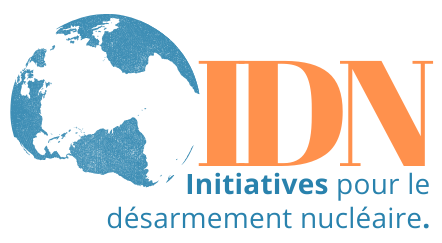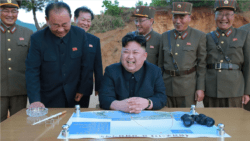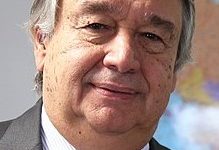To claim that possession of nuclear weapons is the best protection against an attack on the « vital interests » of nuclear powers is, above all, a matter of belief, argue four specialists in the field in an article published in Le Monde.
Proponents of nuclear weapons claim that current international tensions have brought their « centrality » back into focus, and that « nuclear deterrence is making sense again ». This is a distorted view of reality. If nuclear weapons allow Russia to attack non-nuclear sovereign states, this is because nuclear weapons are intrinsically terrorist. By legitimizing the concept of a defense whose « keystone » is nuclear deterrence, programmed to commit massacres of civilians, even if illicitly invoking self-defense, how can we fail to make this « supreme » weapon attractive to predator countries?
The last few weeks have seen a resurgence of unqualified pleas for nuclear deterrence, in response to the tensions provoked by Russia’s aggression against Ukraine. Commenting on his latest book, Pax atomica? in an interview with Le Monde, Bruno Tertrais argues that « [t]he hardening of the international context is making us rediscover the centrality of nuclear weapons ».
After playing down Russian threats, which are in line with the doctrine of deterrence, including the deployment of Russian nuclear weapons in Belarus, he cites the increase in the number of French nuclear submarine patrols, the growth of Chinese arsenals, « the maturation of Indian, Pakistani and North Korean nuclear forces », and Iran’s approach to the nuclear threshold.
Does this mean that the nuclear risk has become greater than during the Cold War, as the UN Secretary-General and many leaders and experts have stated? No, he repeats the mantra of nuclear deterrence: if the major powers are no longer at war with each other, it is thanks to nuclear weapons, which « continue to play a stabilising role – albeit a risky one, a stabilizing role by making large-scale military confrontation between the states that possess them extremely unlikely because it is too costly ».
An increasingly isolated reassurance
In her column published on 7 February on the Le Monde website, Sylvie Kauffmann wonders whether Ukraine would not have been attacked by Russia if it had kept « its » nuclear weapons. It is true that pressure from the three signatories to the Non-Proliferation Treaty (the United States, the United Kingdom and Russia) was strong on Ukraine, which was hosting some
4,000 warheads. But at no time did Ukraine exercise the slightest control over these weapons, for which Moscow has always retained the codes, and Kiev could never even have threatened to use them in defense against aggression, not to mention the costs, technology and fissile materials needed to maintain them, which were beyond its reach.
To continue to assert that nuclear deterrence is the best protection against an attack on the « vital interests » of the nuclear powers and that it has preserved peace has no scientific basis, is a matter of belief, and confuses coincidence with causality. As William Perry, former US Secretary of Defense, said in 2020: « We survived those [Cold War] crises and avoided a nuclear catastrophe as much by luck as by good management. There is no shortage of empirical evidence of the role of luck. Building a defense policy on the hope that luck will continue to prevail seems a risky gamble today.
Why do supporters of nuclear weapons in France believe it is necessary to promote them today and reassure public opinion that the executive has made the right choices? Could it not be because they are beginning to realize, as the Minister for the Armed Forces, Sébastien Lecornu, admitted on 26 April 2023 during the parliamentary debate on the military programming law, that deterrence « is no longer always consensual » (although it never was)?
In fact, the reassuring discourse on nuclear deterrence is increasingly isolated. The hundred or so countries that signed the 2017 Treaty on the Prohibition of Nuclear Weapons (CTBT) (i.e. half of the States Parties to the Non-Proliferation Treaty) declared at their second meeting in New York in December 2023: « The resurgence of the promotion and attempts to justify nuclear deterrence as a legitimate security doctrine falsely suggests that nuclear weapons would be useful for national security, and dangerously increases the risk of horizontal and vertical nuclear proliferation. »
Many « realistic » leaders
On the one hand, France reaffirmed, through its President, in a speech at the Ecole Militaire on 7 February 2020: « Our nuclear deterrent remains, as a last resort, the keystone of our security and the guarantee of our vital interests. Today, as in the past, it guarantees our independence and our freedom of assessment, decision and action. It prevents our adversaries from gambling on the success of escalation, intimidation or blackmail.
But on the other hand, it claims to deny other sovereign states the same benefits attributed to the possession of nuclear weapons. In the same speech, President Macron lamented that « the very idea of a multilateral order based on law, where the use of force is regulated, where commitments are respected, where rights create obligations that apply to all, […] is profoundly called into question today ». At the same time, it contemptuously rejects the only serious multilateral effort in recent decades to promote progressive and controlled nuclear disarmament, TIAN.
The world is rightly shocked today by the massacre of innocent civilians in Ukraine and Gaza. Nuclear weapons are based on the same logic, which is incompatible with international obligations. It is not only moral authorities such as Pope Francis who are calling for their elimination because of the humanitarian consequences. There are also many « realist » leaders, such as the sixty or so former leaders of 20 NATO countries and allies, for whom, « [b]y claiming the need to be protected by nuclear weapons, we are encouraging a dangerous and mistaken belief that these weapons enhance security ».
So far from being the « axis of the world » that would ensure its stability, nuclear weapons, made attractive to predatory countries by the rhetoric of nuclear deterrence, are the « axis of evil » from which the world must free itself.
Jean-Pierre Dupuy is an engineer and philosopher, former professor of social and political philosophy at the Ecole Polytechnique and researcher at Stanford University, author of La Guerre qui ne peut pas avoir lieu (Desclée De Brouwer, 2019)
Marc Finaud, a former diplomat, is senior adviser to the Geneva Centre for Security Policy, vice-president of Initiatives for Nuclear Disarmament (IDN), author of L’Arme nucléaire. Eliminons-la avant qu’elle nous élimine (L’Harmattan, 2020)
Bernard Norlain is an air force general (2S), former director of the Institut des hautes études de défense nationale, and co-founder of IDN
Annick Suzor-Weiner is a professor emeritus at Paris-Sud University, has a doctorate in atomic and molecular physics, and is vice-president of IDN and Pugwash France




